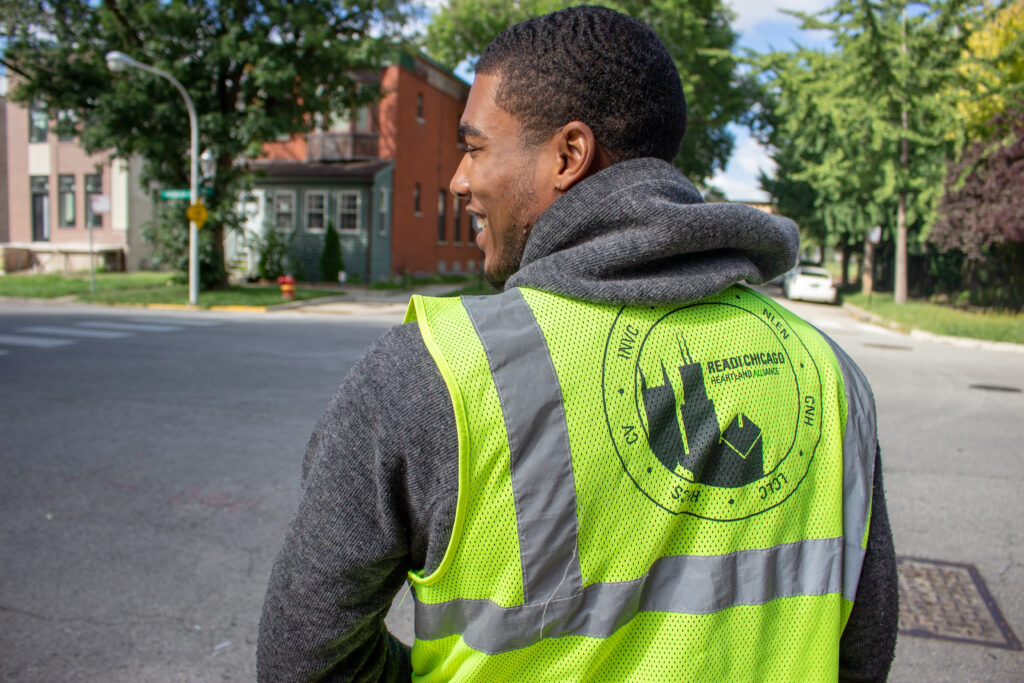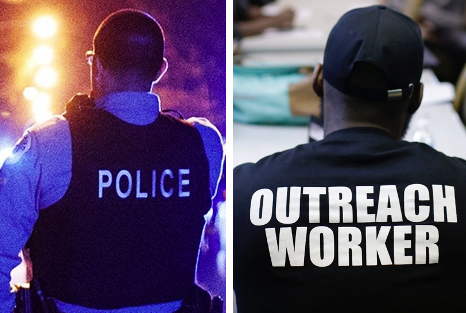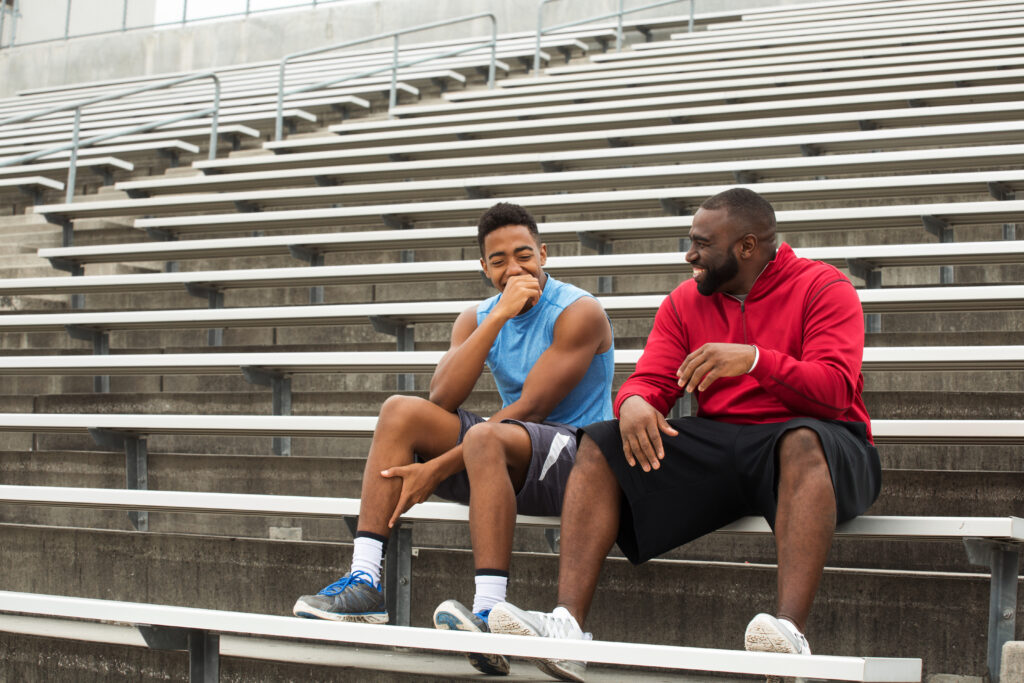Community Violence Intervention
Through a combination of street outreach by credible messengers and behavioral science-informed interventions, community violence intervention (CVI) programs help de-escalate stressful situations before they lead to violence.
The vast majority of gun homicides in America result from arguments that spiral out of control and turn deadly when a gun is present. That’s why CVI programs, such as behavioral science-informed interventions, can significantly reduce violence involvement by helping people cope with untreated trauma and learn to de-escalate conflicts. Given how little we know about alternative responses to gun violence — and the very high costs this violence imposes on our most vulnerable communities — this promise provides a clear rationale to continue studying the CVI model.
The Crime Lab conducts rigorous evaluations of CVI programs and works to find ways to make them even more effective at reaching the individuals at greatest risk of violence, providing the right supports to improve outcomes, and scaling those successes.
Becoming a Man, a program delivered by Youth Guidance that provides young people with behavioral science-informed interventions, can reduce violent crime arrests by nearly 50%.
Our evaluation of READI Chicago, delivered by Heartland Alliance, estimated a return of $4-$20 in social good to society for every $1 spent on the program
Rapid Employment and Development Initiative (READI) Chicago
READI Chicago is a gun violence reduction initiative that provides almost two years of intensive programming to men at the highest risk of shooting or being shot.

Community Safety Leadership Academies
The Community Safety Leadership Academies, composed of the Policing Leadership Academy and Community Violence Intervention Leadership Academy, aim to educate police and community violence intervention leaders.

Choose to Change®
The Choose to Change® program combines trauma-informed therapy with wraparound supports and aims to reduce youth violence while improving educational outcomes outside of an institutional setting.

Youth Advocate Programs
The Crime Lab and Education Lab, in partnership with Youth Advocate Programs, Inc. (YAP), conducted a randomized controlled trial of YAP’s wraparound advocacy services to evaluate the program’s impact on youth academic outcomes and violence engagement outcomes.

Latest Updates
Deaths of decision-making are killing American teens. Schools can fix it.
Crime Lab executive director Katie Hill pens an op-ed for Brookings about how cognitive behavioral programs can teach teens decision-making skills that can dramatically reduce violence and save lives – often at little or no additional cost.

Kelly Leonard: How improv can help police do their job
Kelly Leonard joins WGN’s John Williams to discuss The Second City’s partnership with the Crime Lab’s Policing Leadership Academy that’s using improv to help officers improve their communication skills.

Novel approaches can chip away at gun violence, and make a big difference
In an op-ed for the Chicago Sun-Times, Crime Lab Pritzker Director Jens Ludwig argues that when it comes to gun violence, we’ve been focused on the wrong solutions – a key insight from his new book, “Unforgiving Places: The Unexpected Origins of American Gun Violence.”

